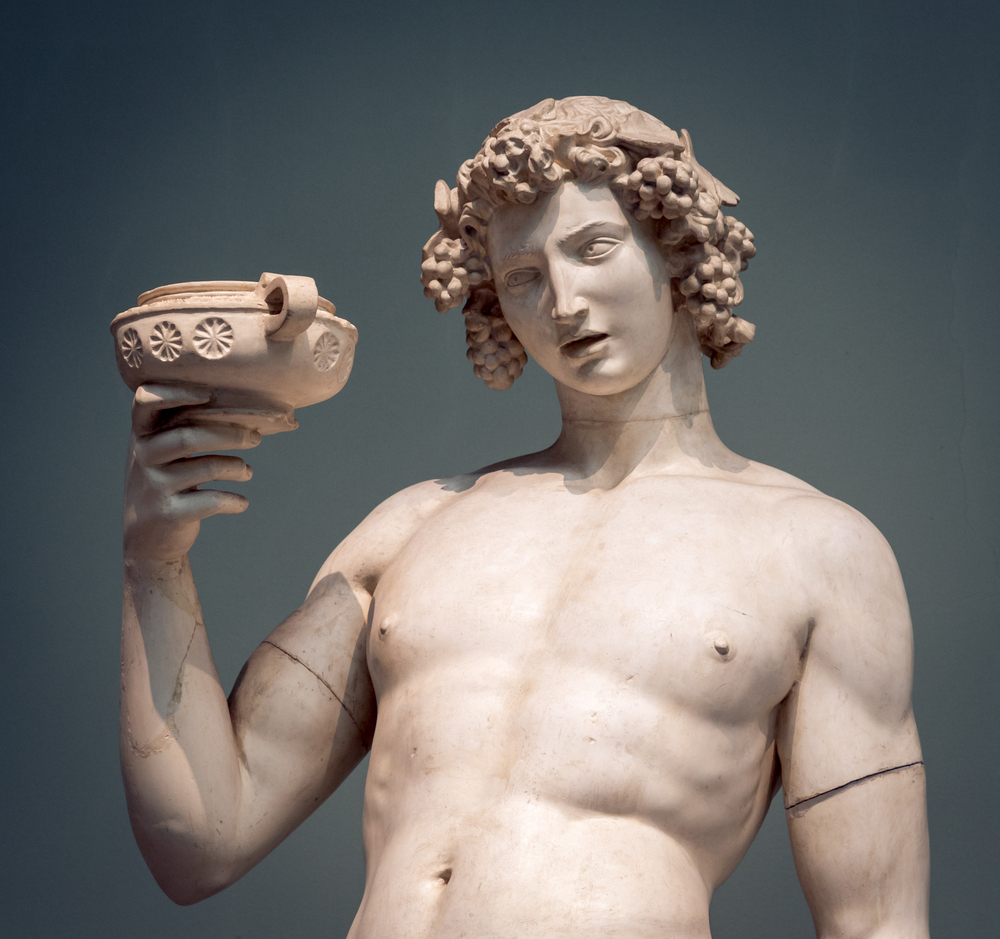
Throughout history, there have been countless deities worshipped by different human cultures. More often than not, the gods and goddesses remembered are those that pose some type of threat. Zeus was the most powerful of the pantheon of Ancient Greece because he controlled lightning. The God of the Old Testament, similarly, made his power known through plagues and worldwide disasters. Despite how loud and in-your-face these supreme beings might be, there are plenty of spirits who are more interested in…spirits. Gods of the vine are those deities worshipped for their love of wine, beer, and other libations.
Though few of these gods are worshipped today, their prominence throughout history proves how important alcohol has been to the human race. Review these highlights and learn more about the gods of the vine.
Gods of the Vine: Dionysus
Perhaps the most popular partygoer on this list, Dionysus was the Greek god of wine, grapes, orchards, fertility, and fruit. Like several of the Greek gods, Dionysus was worshipped by cults that practiced secret rituals that have been largely lost to time. However, historians believe that feasts held in the god’s name were events of excess. From wild orgies to ecstatic dancing that climaxed in violent frenzies, honoring Dionysus looked very different from the way most modern individuals go about worshipping their chosen gods.
Dionysus would be converted to Bacchus once the Roman Empire took control of the Mediterranean. Though his role would largely remain the same, his duties expanded and included theater and other performing arts. Like the followers of Dionysus, those who worshipped Bacchus usually did so in excessive and elaborate ways. In fact, the term bacchanal, which means “an occasion of wild and drunken revelry,” is derived from these religious gatherings.
Li Bai
In China, the god Li Bai is one often associated with wine. Like many deities of China, Li Bai is based on a real individual who is said to have lived sometime during the Tang dynasty. He is considered one of the people responsible for bringing poetry to the land. Many of his poems were built around the simple joys of life, especially enjoying the company of friends and indulging in the drinking of wine. It was for these reasons that Li Bai became associated with poetry, wine, friendship, and the solitude found in the beauty and depth of nature.
Gods of the Vine: Mayahuel
While wine and beer are usually the most represented drinks when it comes to gods of the vine, there are plenty of other deities who favor other options. The goddess Mayahuel is one such spirit. An ancient deity of the Aztec, Mayahuel is a fertility goddess associated with the maguey plant. Also known as American aloe or the century plant, the most popular use for many varieties of maguey is making tequila. While modern individuals in Mexico may associate Mayahuel with tequila, the ancient Aztecs saw her as the goddess of pulque, another alcoholic byproduct of maguey.
Ninkasi
The earliest known civilization in the Mesopotamia region of the Middle East was called Sumer. The Sumerian religion contains some interesting examples of prehistoric gods and goddesses. One such deity was Ninkasi, who was immortalized in texts that are considered some of the first human writings. In the text “A Hymn to Ninkasi,” a recipe for how to make beer is provided. The recipe and its importance are repeated, much like the lyrics of a song. Scholars believe the clay tablets containing the text were meant as a way of passing brewing information between generations.
Alcohol might cause as many problems as it supposedly solves, but it is hard to deny how important the act of drinking has been to people over the millennia. By learning about the spirits associated with alcohol, you can gain some new perspective on the different directions civilizations have taken throughout history.

